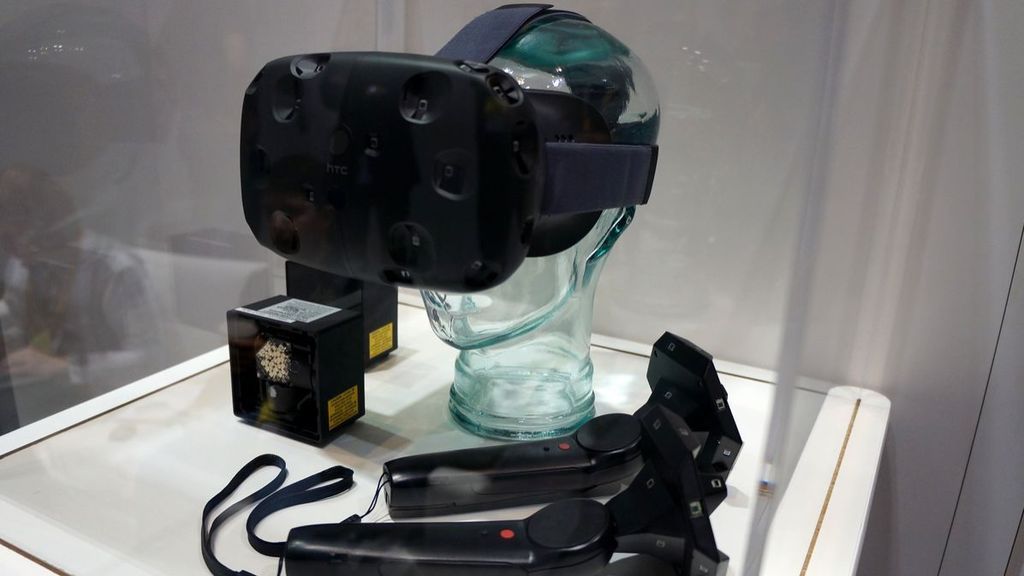The definition of the word “expensive”, according to oxforddictionaries.com, is “Costing a lot of money”. The HTC Vive has been announced to cost $799, and the Oculus Rift will cost you $599 (excluding tax and shipping). $799 is a lot of money, and so is $599 (excluding tax and shipping). In addition, these prices do not include any additional cost incurred through buying and/or upgrading your PC to a level of power which can actually cope with running VR. Therefore it is, despite what the people set to profit from an unlikely VR success story are telling you, factually correct to say that these items are “expensive”.
You might say that expense is relative, and you’d be right. The Oculus Rift looks expensive next to a Mars Bar but less expensive next to, say, the latest Mercedes. The bottom line though – and surely most people will agree with me on this – is that $600-$800 is a lot of money to the vast majority of people, regardless of what the price tag is attached to. Convert it to your local currency (we in the UK already know we’re going to get shafted above that*) and it’s a month’s rent; or probably even more. Perhaps it’s your household’s monthly food, gas, and electric bills combined or, again, perhaps even more than that. If you work part time, it’s likely more than you take home for a whole month’s work. It’s not as simple as ‘stop whining that these things cost more than a games console’.
The most common argument in favour of the VR prices thus far announced is a somewhat insulting, condescending one. “These are very reasonable prices for what you’re getting,” they coo. “You simply don’t understand that. What did you expect? This is complex, advanced, and very exciting technology!”. Now, take a moment to consider who it is, exactly, that has come out to defend the VR headset pricing. Many people; many, many people. The next time you see such an argument however, closely examine who it is that’s making it. Do they stand to profit from the sale of these headsets in some way? Do they work for a VR hardware company, or a VR software developer? Or perhaps they’re a journalist or blogger who’s had some hands-on time with the relevant technology; in an extremely carefully-controlled environment, and completely for free? Is this same journalist or blogger set to get at least one VR headset for free as part of their work who, for themselves or for their boss, already knows that writing thousands upon thousands of words about VR will help put bread on the table in the near future? Somebody, somewhere, will want to be sure that a relationship with the relevant companies hasn’t soured before it’s even begun. That doesn’t mean there are shady deals betwixt reporter and VR peddler; just that it’s human nature to avoid shooting yourself in the foot wherever possible.

You too could look this cool.
How many people, basically, that aren’t paid to sell or write about VR have you seen say “$600 is perfectly reasonable for a VR headset, I have no problem with that”?
Despite what I may have led you to believe, I do actually think it’s likely that these prices couldn’t come down too far before they would result in each unit being sold at a major loss. Even if this is true however, using this fact as a defence is missing the point by a country mile. Videogames, after a long and hard struggle through the decades, are finally accepted, understood, and even enjoyed by pretty much every level of society in a huge number of countries across the globe. There are still many people who fear and misunderstand games of course, with no interest in learning; but generally speaking, any given room full of people will have games fans in as surely as it will have movie fans in. This is in no small part thanks to the mammoth success of first the PlayStation and then the Wii, which each opened gaming up to the masses in very different but equally important ways. VR wants to take the industry backwards in one huge, regressive leap.
Gaming used to be a small, sweaty, nerdy club populated almost exclusively by teenage boys. The future that VR is allegedly leading the charge toward is something depressingly similar. I strongly believe that when it comes to games, VR will crash and burn this year, and I will enjoy watching the flaming wreckage come thundering to the ground. Price isn’t the only issue, but it is an important one. The $599 and $799 price tags immediately exclude a significant proportion of existing consumers. Not just kids and young teens who rely on relatives to purchase hardware for them, either. There are a few different figures given for the average gamer’s age, but it seems to be in the early thirties. You know; the sort of age where you’re settled into bills and responsibilities such as rent, tax, food, kids, car, electricity, gas…
Business owners and those on high salaries might still buy VR without a second thought. Even those with more squeezed budgets might save up and just about manage to nab one, and good luck to them. But how many people will do that? The biggest question of all, of course, is… why would they do that? Name me just one VR game that rises above ‘interesting’. One VR game that compels you or anybody else to lay down the money for a pre-order, something that looks like an incredible experience that nothing currently on the market is even remotely similar to. It’s my strong belief that at least 90% of VR sales, both existing and upcoming, are simply developers selling to each other. It’s a very pretty bubble that’s almost ready to burst.

Sony is in the perfect position to save and even dominate the VR market, but there’s a significant question mark hanging over this. That question mark is, as you might expect, money-shaped. With recently announced global PS4 sales of almost 36 million, that is theoretically 36 million potential customers who can be certain that they already own hardware 100% compatible with Sony’s VR headset. Even the PlayStation VR experience itself is unique, with each game providing a display for the TV as well as the headset (distracting friends and family from what a tool you look like wearing the thing, if nothing else). Your PS4 is probably already in the living room, dampening the isolation previously supposed to be an integral part of the VR experience. If PSVR launches for half the price of its next-cheapest competitor, it will almost certainly succeed, and decide the VR race as soon as it starts. That sort of price, however, is looking very unlikely.
Unless Sony moves the goalposts in a bold and daring gamble, VR is expensive. Anybody who tries to tell you different has an agenda.
*Just as I was finishing this piece, it was announced that the UK price of the HTC Vive is to be a currency-converter-ignoring £689, which includes three games (Tilt Brush, Job Simulator: The 2050 Archives, and Fantastic Contraption).



Luke,
Fantastically-written article. I completely agree with everything you’ve said here. I just hope this begins to resonate in the community. My favorite line in this entire piece…” I strongly believe that when it comes to games, VR will crash and burn this year, and I will enjoy watching the flaming wreckage come thundering to the ground.”
Timeless sir.